#btvs article
Text
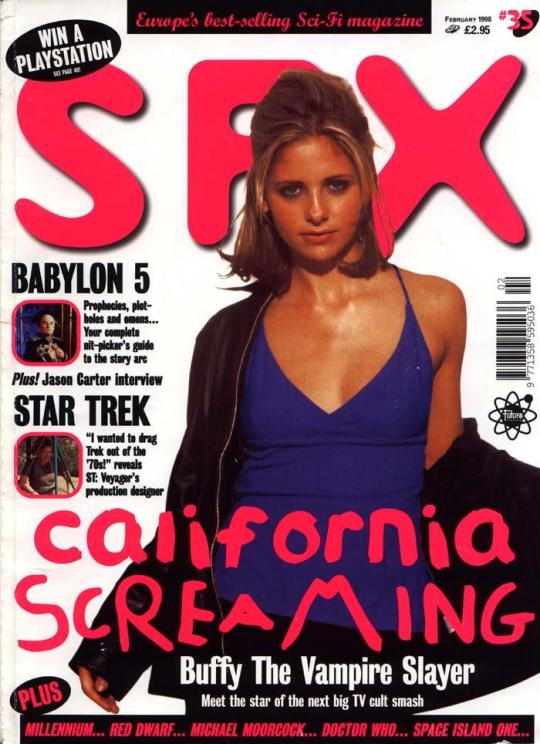


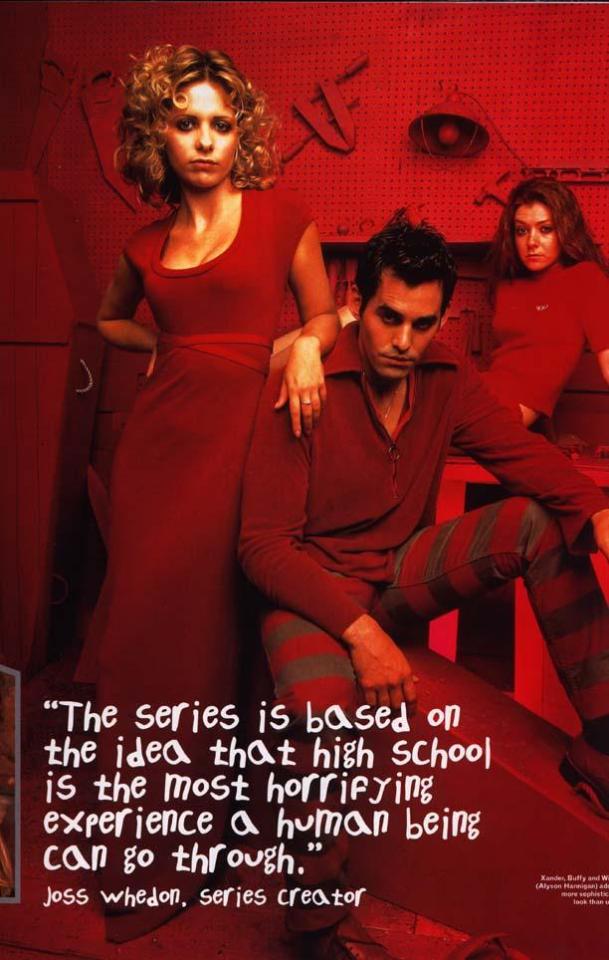
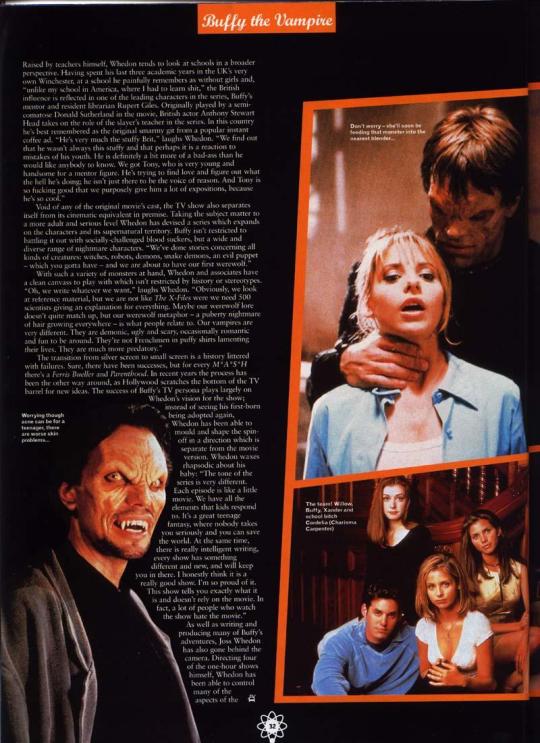
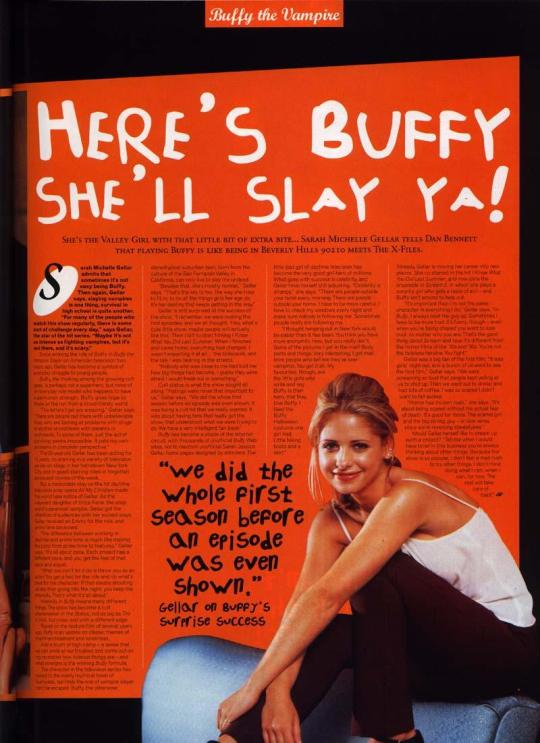

Buffy the Vampire Slayer article for SFX UK (1998)
#wh*don is heavily featured so read at your own discretion#quality isn’t the greatest as it’s an old scan of this magazine#i found this awesome archive website and got so excited abt all the magazine articles#joss whedon tw#btvs#buffy the vampire slayer#cast#buffysource#slayerdaily#dailybtvs#mine#but obviously this magazine isn’t *actually* mine lol#btvsedit#buffyedit
200 notes
·
View notes
Link
This list is extremely important to me and HELLO TO MY OTP’s being in the Top 3.

One shattered my heart into a thousand pieces and the other was a dream come true. TVLine knows how to pick um.

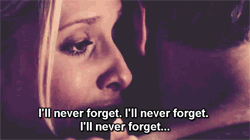
#arrow#olicity#arrow fandom#olicity fandom#olicity wedding#olicity movie#bangel#buffy and angel#oliver and felicity#arrow articles#olicity articles#btvs#Buffy The Vampire Slayer#btvs articles
31 notes
·
View notes
Text
been thinking about vampires for world building cause of the whole 1 vampire character i have
#trying so hard to not make them like btvs vampires#might write a whole [fake] academic article about vampires for worldbuilding#but yknow how i am about actually writing someone#anyways as always questions i love them#klepto talks to himself
5 notes
·
View notes
Text
tennessee williams like from my tumblr dashboard

#(article is about oz tara and anya in btvs episodes wild at heart family and selfless respectively)
10 notes
·
View notes
Text
2 notes
·
View notes
Text
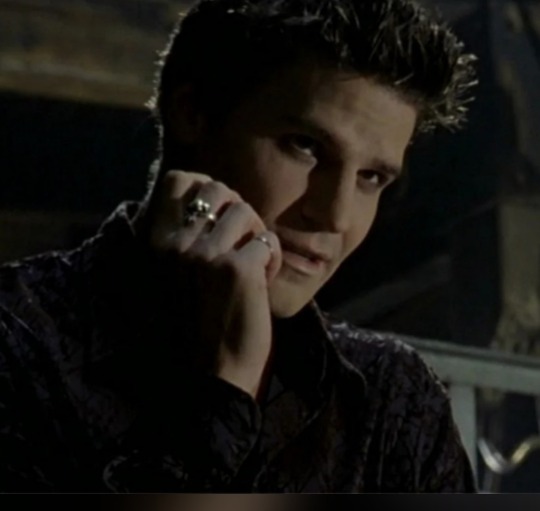
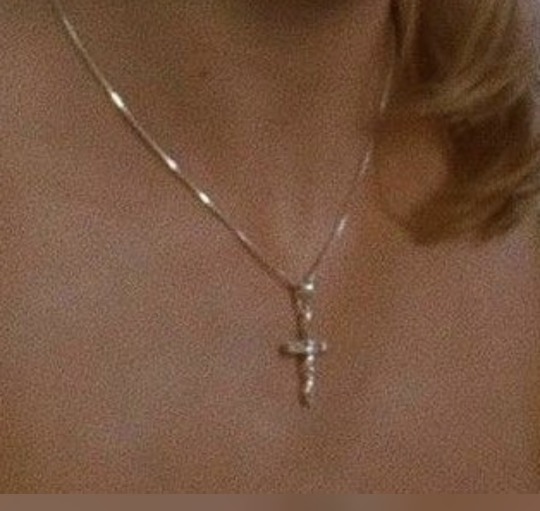
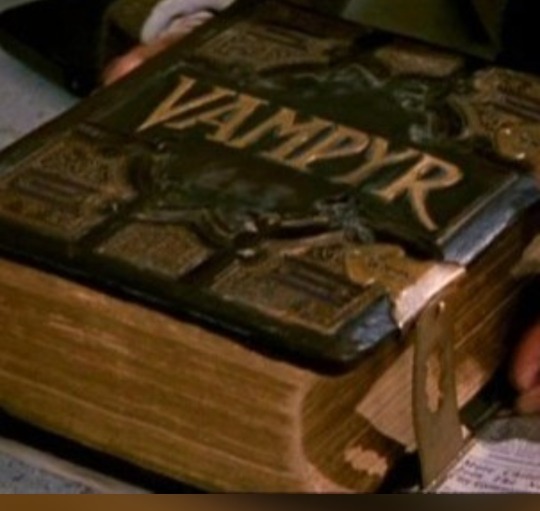
bait - ANGELUS (btvs)
(angelus x female!reader one-shot)
summary : in a desperate attempt to catch angelus, the scoobies send you in as bait.
a/n: i don't usually write darker pieces of writing such as this, so lmk what you think ! :)
warnings : gets a bit spicy, sexual references, strong language used, angelus hurts reader, mention of blood, a sprinkle of yandere, kinda angsty?? 14+

"Angel?" You said uncertainly, pushing open the door to his apartment. It was unlocked.
The silence felt consuming, and you swallowed anxiously as you took small steps inside.
His bed was untidy, duvet strewn across the floor, "I came to ask for help, there's a demon-"
"(Y/n)? You're back?" He walked in after you. You forced yourself not to wonder whether he had been following you or not.
His voice startled you and you failed to suppress a flinch. You hadn't seen him like this yet, had only heard the chilling stories that Giles and the others had told you full of the details of what he was capable of. Buffy had been determined to keep you far away from Sunnydale, from the soulless demon, to hide you and ensure your safety. You had been face to face with Angelus before, and it hadn't turned out well. But things had changed, your situation had changed, and your friends needed help to defeat him. No matter the cost.
He looked almost exactly the same as always, except his brown eyes were filled with faux concern. "Are you okay?"
Angelus advanced towards you as your eyes flitted to the clock on the wall opposite. Seven and a half minutes. Then Buffy would be here, and Angelus would be caught and restrained. A couple of minutes. You could do that.
Yet you hadn't entirely been sure of your friends' plan- luring Angelus into one place would surely be something the two-and-a- half century old demon would expect. But your friends - Buffy especially - were desperate, and it seemed that the vampire couldn't resist an opportunity to spend time with you. To kill you, was your assumption. He had made it clear from the start that he delighted in these small games that you all played. What worried you was that he always left as the winner.
"Yeah, I have to write an article on Sunnydale's history; I'm an intern now at the Sunnydale Press." You explained, your confidence increasing, "I figured you could help. I arrived this morning and the others weren't home so.." You trailed off, uncertain if he'd bought it. You were doing a terrible job at pretending and you knew it, but the others insisted that it should be you who stalled Angelus. In the past he had always been slightly more lenient in a situation where you were involved.
"I thought you needed help with a demon?" He jested, and your heart dropped. He knew, and you were fucked. But there was nothing left to do except play along.
The vampire slowly advanced and you moved backwards, "Yes, uh, an article on the history of demons in Sunnydale."
Your back hit Angel's wardrobe, and the man opposite you smiled.
"I've never liked liars." He said absentmindedly, finger lifting your chin as he observed you. The fear in your eyes was evident and he inhaled your scent, distress seeping from your pores. "Tell me, (Y/n)," He began, closing what little distance was left between you. If he had been human, you would've been able to feel his breath hitting your face. You shivered. "-and don't lie," he continued, "do you ever think about me?"
You struggled against him, "Angel I-"
"Don't say his name," Angelus spat through gritted teeth as his hands harshly grabbed your wrists, keeping you firmly in place. "And feel free to keep struggling, precious, but just do it a little more to the left." He groaned.
You didn't respond, breathless and feeling nauseous. The both of you knew that you could easily resist him more if you tried, but Angelus knew that despite what you told yourself you didn't want to.
"At night, when you're in your small double bed, cushions propped up around you, hair down, head leant against the headboard, heart racing, in your thin, thin silk dress," He paused as though he were imagining it right then and there, imagining the fabric, imagining how when it hit the moonlight it was practically see-through, "the one in that pretty shade of periwinkle," his eyes found yours again, and you swore they darkened. You were shaking under his touch, terrified at the prospect of this, monster watching you when you were most vulnerable. During moments you had thought you were alone. Private moments. And how had he even known where your friends had hidden you? "-do you ever think about me?" He repeated, pressing into you as a warning that if you dared to lie, to even consider it, he would know. The frail, wooden wardrobe shook at the movement.
"Yes." You whispered, barely audible, eyes focused on anything but his face.
He removed his hand from your left wrist and tilted your jaw so that your eyes were forced to look into his brown ones. Angel's eyes, yet lacking Angel's warmth.
"Good, good." He dragged the words out as his tongue darted out to lick his lips.
Your eyes fell to his mouth, then hurriedly went back to his eyes. He was smirking, he'd noticed.
"And how," his face morphed into a vampire's, "does it make you feel?"
Tears brimmed in your eyes as he grinned, revealing his fanged teeth. A warning. It was pointless- his teeth would end up buried in your neck no matter what you said.
"Good." A salty tear fell onto your cheek, which he instantly swiped away with his thumb. "And I hate myself for it." You mumbled, voice breaking. You had always had an attraction to Angel, even during his relationship with Buffy, and the shame of it was suffocating. She had never been anything but good to you, and you had repaid her by stealing glances at Angel whenever you thought no one was looking.
However now it became clear that someone had been.
"What was that?" Angelus lowered his fangs towards your neck at a tantalisingly slow rate. As though he meant to drag out the pain, to burn this memory into your brain.
Your eyes fluttered closed in preparation as you whispered, "I hate myself for it every, day."
A small scream left your mouth as the door to Angel's apartment was broken off its hinges, clattering onto the floor only inches away from where the two of you were. Buffy.
Angelus slowly pulled himself off of you. As a result of the interruption, his fangs had only managed to puncture the top layer of skin, leaving behind two red dots that quickly began to pool with blood. Angelus licked the smudge of red off of his fangs, making a show of savouring the taste.
Your best friend and mentor, the slayer, began to fight the vampire as you tried to help at every possible opening, but it was no use. He easily escaped.
Your neck on fire, you gently brushed the tips of your fingers against it, pulling your hand away to see them coated in crimson blood. Something told you that Angelus would be back for more.

thank you for reading!! lmk your thoughts <33
#buffy the vampire slayer#btvs#angel btvs#angelus#angel the series#buffyverse#Angelus buffy#Angel buffy#Angelus x reader#Angel x reader#buffy summers#spike buffy#giles btvs
219 notes
·
View notes
Text
A defence of the Good Guy / Bad Boy love triangle
It is no secret that mainstream YA & NA fantasy gravitates towards an angsty love triangle. But is this trope's popularity due to vapid teenage vanity... or something far deeper?

Warning: in this post, I will be referencing: True Blood/The Southern Vampire Mysteries, Legendborn, A Court of Thorns and Roses, The Shadow and Bone Trilogy, Buffy the Vampire Slayer, The Hunger Games, Chilling Adventures of Sabrina, and The Vampire Diaries. Some minor spoilers, mostly relating to the romance side of things, may be involved.
I have stumbled across a bunch of articles lately analysing why love triangles are popular in YA and NA fiction - and all of them, in my opinion, missed the entire point.
Firstly, they focus entirely on the "love interests", while wilfully ignoring the fact that the romance element is often a subset of these stories, rather than the main focus (more on that later).
Secondly, these articles often attribute the appeal of the love triangle to "teenage vanity". They either directly state or imply that young women are drawn to the idea of "provoking" two men into a fight for their affection.
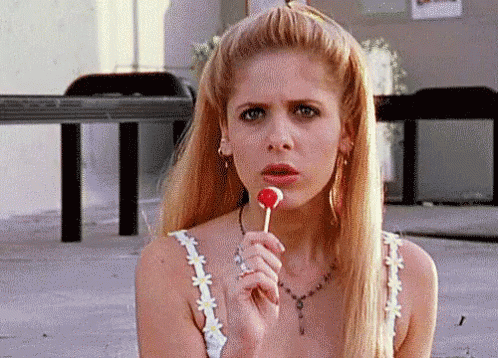
Look, I get it.
Or at least I get how a middle-aged man tap-tap-tapping away on his computer might draw that conclusion. Especially if the crux of his knowledge regarding female-centred fantasy rests on blog posts ripping apart Twilight.
But regardless, the fact remains that labelling YA love triangles as a conceited sexual fantasy is a gross over-simplification. Why? Because romance is rarely the point of the story. Instead, the love triangle is a vehicle through which the author complements and elevates the standard Hero's Journey plot beats.
To demonstrate this argument, I will go through each of the critical plot beats in the Hero's Journey. For each beat, I will demonstrate (with examples) how dual love interests can underscore the character development of the protagonist and highlight her emotional struggles during each stage.
The outline for this analysis will be as follows:
Introduction of the Female Protagonist / Refusal of the Call
Meet the Good Guy / Meeting the Mentor
Meet the Bad Boy / Tests, Allies, and Enemies
Death of Innocence / The Ordeal in the Abyss
Heartbreak / "Death" of the Mentor
Grief for Lost Innocence / Refusal of the Return
Self-Discovery / The Road Back Home
Female Protagonist Accepts Her New Self / Master of Two Worlds
For reference, here is a rough outline of the major plot beats in the Hero's Journey:
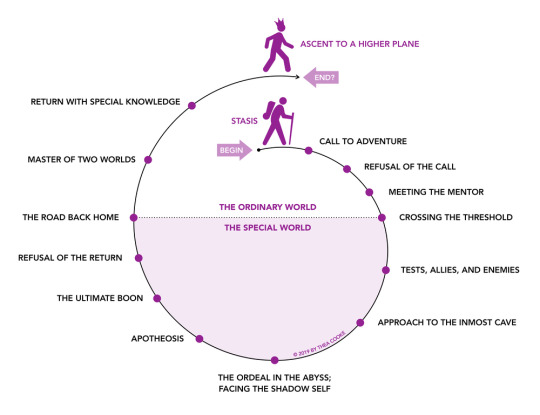
Alright. Time to rip apart some assumptions.
Let's go!
Introduction of the Female Protagonist
Refusal of the Call
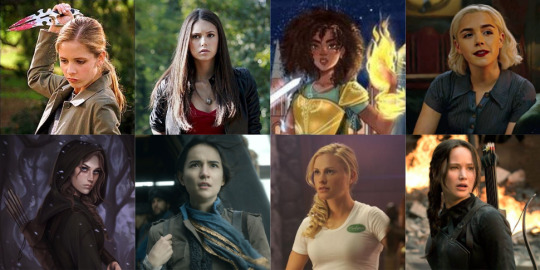
Mainstream fantasy love triangles almost always centre a female protagonist hence why people love to hate on them. The introduction of this protagonist generally follows your fairly standard Hero's Journey opening.
We meet the protagonist, usually a teenager or young woman, going about their "everyday life" in the ordinary world.
But then the Call to Adventure comes - sometimes referred to as the Inciting incident. For Feyre (ACOTAR), this moment is when she kills a wolf who turns out to be Fae. Or for Katniss (HG), her sister's name is drawn, prompting her to offer herself as a tribute instead.
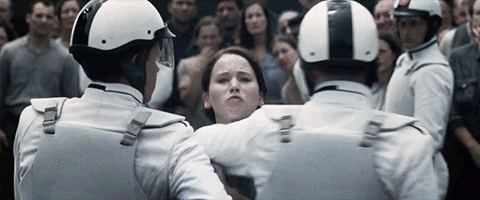
The Call to Adventure or Inciting Incident marks a point of no return - even though the protagonist might not realise it at the time. It is the moment when life as they know it ends. Afterwards, nothing will ever be the same, including the protagonist.
The following beat is usually the Refusal of the Call, where the protagonist resists any change coming their way. Buffy (BTVS), for example, wants to continue her life as a regular teenage girl instead of being burdened by the duties of being the Slayer. Similarly, Sabrina (TCAOS) is hesitant to participate in the dark baptism, scared of its implications for her ties to the mortal world.
But for the plot to move forward, something or someone needs to prompt the protagonist to leave the "ordinary" world behind - and in turn, take those first few tentative steps into the "special" world (unknown).
Enter...
Meeting the Good Guy
Meeting the Mentor
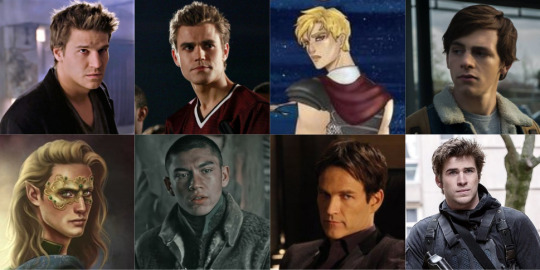
The Mentor doesn't always have to be an Obi-Wan-style character who teaches the protagonist everything they know about lightsabers. In its simplest form, the Mentor archetype is a guide. Someone who takes the protagonist by the hand, either literally or metaphorically, and leads them from the ordinary world into the special one.
This transition is known as Crossing the Threshold and it is the beat that marks the shift from Act I to Act II.
Now, there is a good reason why the Meeting the Mentor plot beat often serves as a precursor to Crossing the Threshold. And no, it isn't because the protagonist is incapable of doing anything by themselves.
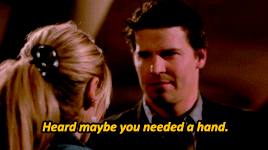
Instead, the Mentor character is often employed to explain how this new world works to both the protagonist and the reader alike.
Through the protagonist interacting with a "guide", the rules and systems of the new world can be revealed through dialogue and action, rather than excessive exposition and info-dumping.
And this is where the "good guy" as a Mentor character stand-in comes into play. His arrival serves the dual purpose of propelling the protagonist into the Crossing the Threshold beat and guiding her once she does.
For example, Sookie's budding romance with Bill is what introduces her (and us) to the Charlene Harris's world of vampires in True Blood. Or, in Tamlin's case, he takes his role in "helping" Feyre to cross the threshold quite literally and abducts her, forcing her to leave the human world behind in place of the world of Fae.

Now, there are quite a few exceptions to this good guy/mentor rule and they generally occur when the good guy is a childhood friend or sweetheart. Examples include Harvey (TCAOS), Gale (HG), and Malyen (SAB).
When this happens, the good guy often provides the protagonist with a much-needed link to her previous life and/or the ordinary world. He takes on more of a "grounding" role, rather than a guiding one.
But regardless, what these good guys have in common is a fairly standard set of traits. They are protective, have a strong moral compass, and are incredibly loyal to the protagonist.
Furthermore, they are almost always the protagonist's "first love". They offer her the emotional support she needs in order to move forward by making her feel less alone in the world.
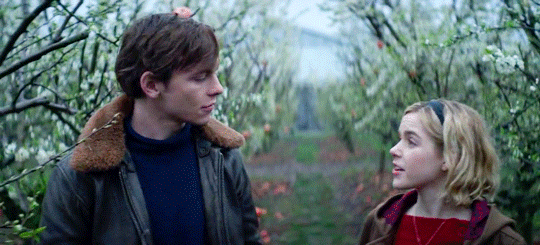
Regardless of whether the good guy is a childhood friend or a mentor-like character, his relationship with the protagonist usually marks a time of both innocence and self-discovery. He is a source of love and companionship while the protagonist takes those first few tentative steps into the unknown.
Meeting the Bad Boy
Tests, Allies, and Enemies
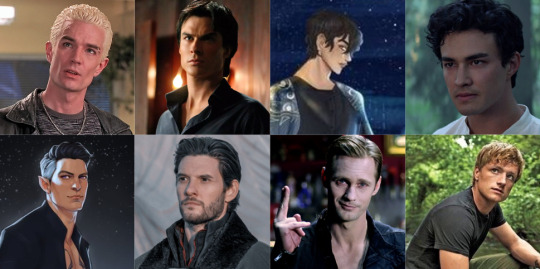
The Hero's Journey is, at its essence, a Bildungsroman-like story. Or at least it is in the YA/NA genres. It is a coming-of-age tale, with Crossing the Threshold being a symbol for leaving the child behind in order to discover the adult that awaits.
What follows is a collection of plot beats known as Tests, Allies, and Enemies. This stage of the story is often fraught with missteps and small triumphs, good times and bad times - much the same as adolescence.
And this is where the bad boy comes in.

Sometimes the bad boy manifests as an enemy who the protagonist must face in some kind of test like Spike to Buffy. Other times, he presents as a Temptation beat, like the Darkling does to Alina (SAB), trying to lure the protagonist away from their path.
But regardless of how he makes his entrance, the initial purpose of the bad boy is almost always to bring the protagonist face-to-face with the dangers of this new world.
For example, through Eric, Sookie realises that not all vampires are polite and restrained like Bill. Similarly, Feyre's first encounters with Rhysand show her an even darker side to the Fae.
Even bad boys who are not outright evil still tend to behave in a way that the protagonist finds confronting, like Peeta (HG), whose ruthlessly practical survival tactics disturb the very moral Katniss.
In this sense, the bad boy fashions himself into a symbol of the harsh realities of adulthood. Much as a child might find their first encounter with the cruelty of the world shocking, the protagonist is shocked and appalled by the bad boy.
We're not in Kansas anymore, Dorothy.
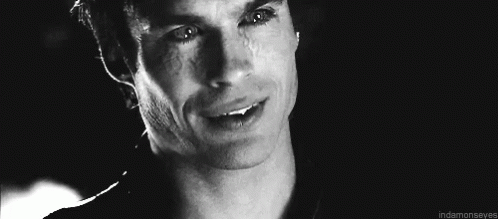
However, it is important to note that the bad boy is usually just one component of the beats involved in the Tests, Allies, and Enemies section. Again, this ties in with my argument that these stories are a Hero's Journey first - with the love triangle simply underscoring that fact.
The friendships that Buffy forms with Willow and Xander are shown to be her two most enduring relationships, while her love interests come and go. In Legendborn, Bree's quest to learn the truth about her mother's death has nothing to do with romance at all. And Sabrina's rivalry-to-friendship arc with Prudence gets significant screen time across multiple episodes and seasons.

During the Tests, Allies, and Enemies stage, the protagonist is usually starting to come into her own. She faces challenges, forms friendships, and encounters enemies. And yes, with love triangles there's usually some lust and romance thrown in there, too.
But the main focus of this stage is that the protagonist is starting to learn who she is. She is becoming more and more powerful with each setback and triumph.
The Death of Innocence
The Ordeal in the Abyss

The Ordeal into the Abyss, also known as The Belly of the Whale, is a plot beat where the protagonist encounters their greatest test thus far.
Rather than this beat being the climax of the story, The Ordeal is generally a challenge that the protagonist must face before the final confrontation or battle - and they must do so alone. It sees them hitting rock bottom and coming face-to-face with their greatest fear, whatever that may be.
This plot beat is a transformative one. It forever changes the protagonist and readies them for the final battle ahead. It is a death of innocence. The moment when the "girl" becomes the "woman", so to speak.

And in this sense, The Ordeal in the Abyss comes with loss and gain in equal measure. Yes, the protagonist is stronger for the experience, but not without cost.
To get to this point, she has been to hell and back. Sometimes literally (cough, cough. Sabrina). The protagonist is now well acquainted with the darkness of this new world but, in order to survive it, she has to absorb some of that darkness into herself.
If you gaze into the abyss, the abyss gazes into you.
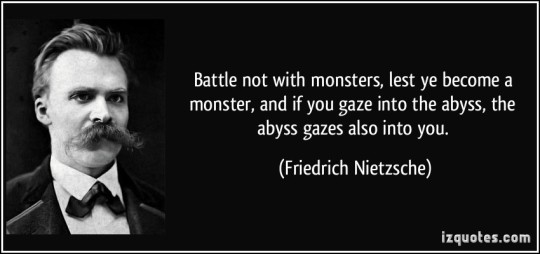
The aftermath of The Ordeal usually sees the protagonist having conflicting feelings over what she has discovered about herself.
On the one hand, she might relish her newfound power and strength. But on the other hand, she may also be afraid of who she had to become in order to emerge triumphant.
Heartbreak
"Death" of the Mentor

The Death of the Mentor isn't always a literal death, but rather, it is a plot beat that forces the protagonist to stand on their own two feet.
By losing the mentor, the protagonist's safety net is ripped out from underneath them. It places them in a "sink or swim" situation that is critical to their growth as a character.
This is why the relationship with the good guy must either falter or end at some point, even if only temporarily. Their breakup serves as a stand-in for the Death of the Mentor plot beat.
Because despite romance featuring heavily in these stories, there is still an inherent idea within them that there are certain steps in a woman's coming-of-age that she must take alone.
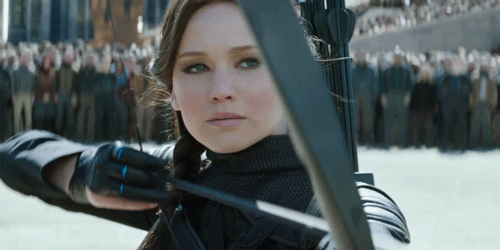
The cause of this breakup is almost always due to the transformation that the protagonist underwent during The Ordeal. The good guy no longer understands her, even though he may want to.
For example, Feyre's experience Under the Mountain sees her outgrow her coddled life with Tamlin. Similarly, when Katniss returns to 12, Gale can't fully comprehend what she went through, nor the role she is being forced to play as a result.
Grief for Lost Innocence
Refusal of the Return

The combination of The Ordeal and the Death of the Mentor take their emotional toll on the protagonist. She mourns for the girl she once was, the loss of her first love, and the ordinary world that is now a stranger to her.
What follows is a low point called The Refusal of the Return. Sometimes this beat sees the protagonist running away from her problems, as Buffy does when she flees Sunnydale after killing Angel.
Other times, The Refusal of the Return is a period of rebellion. Grief manifests itself into rage and the protagonist leans more heavily into that darker side of themselves that they discovered during The Ordeal. Like when Elena turns off her humanity following the loss of her brother.
It is usually during this stage that the bad boy begins to take on a more prominent role. (Welcome back to the plot, bad boys!)
At some point, either during this beat or perhaps earlier, we see a different side to the bad boy. Most often, this occurs when the bad boy shows the protagonist some kind of vulnerability, leading her to second guess her first impression.
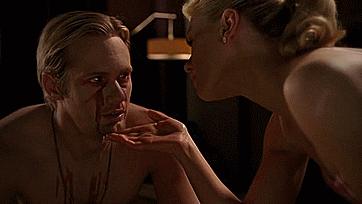
In the Darkling's case, Alina recognises his profound loneliness. Sookie witnesses Eric's grief at the loss of his maker, Godric. And Rhysand confides in Feyre about the horrors he endured at the hands of Amarantha.
However, seeing this "other" side isn't just a plot device to justify the protagonist's developing feelings for the bad boy. But rather, it serves as a mechanism through which the protagonist's assumptions and beliefs are thrown into question. Not just about the bad boy, but about the world in general.
Disrupting the protagonist's foundations is essential to nearly all emotionally-driven storytelling. Through shattering the her beliefs - whether it be in a system or person - the narrative is propelled forward as the protagonist is then forced into come to her own conclusions.
And this - THIS! - is where the "good guy / bad boy dynamic" becomes so much more than just a blatant over-simplification of male archetypes pandering to female sexual fantasy.
The dichotomy of "good" and "bad" expands here to represent larger choices that the protagonist has to make. Comfort or danger? Honour or Power? Altruism or ambition?

Furthermore, the protagonist's conflicting feelings about the two love interests underscores the very real push-and-pull we all feel during adolescence. Where we crave the adventure and independence of adulthood while simultaneously mourning the safety and protection of childhood.
And this is why the good guy / bad boy love triangle can be such a great plot device. It's not only fun to read (when done well) but it makes sense that the protagonist might find herself drawn to someone whose darkness matches her own.
Who the bad boy is - and what he has done - creates a safe space for the protagonist to explore this darker side of herself. To rebel. To fall apart. To be selfish for once, instead of selfless.

At a time when others in the protagonist's life, like the good guy or her friends, my judge or simply not understand her, the bad boy offers a reprieve. But whether this reprieve positively or negatively influences the protagonist tends to vary from story to story.
Sometimes he is the one who encourages her Refusal of the Return, as the Darkling does for Alina. Other times, the bad boy helps the protagonist in returning to her path, rather than luring her away from it, by offering her his understanding.
Peeta gets what Katniss is going through in a way Gale never can because he went through it, too. Similarly, Stefan can't provide Elena with the reassurance she needs after becoming a vampire because he has never come to terms with his own loss of humanity - therefore, enter Damon.
Self-Discovery
The Road Back Home
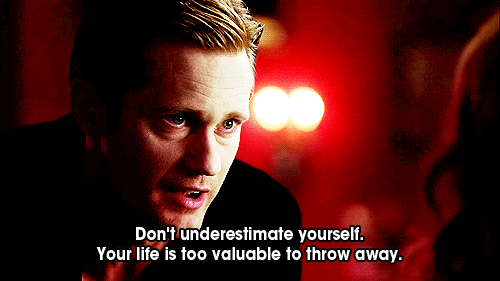
The Road Back Home sees the protagonist emerging from her Refusal of the Return. It is when she embarks on the journey to fully reconcile the girl she once was with the woman she has become. To do this, she needs to confront her trauma from The Ordeal and forgive herself for whatever darkness it might have awakened.
This is usually a gradual process that takes place over many chapters or episodes. In many ways, it is a mirror to the Crossing the Threshold beat. Except this time around, the protagonist is looking inwards not outward - instead of discovering the new world, she is discovering herself.
During this time, the bad boy's relationship with the protagonist is often explored more deeply. Being loved by the bad boy - darkness and all - is usually a precursor to the protagonist beginning to accept this darker side of herself, too.
But a distinction needs to be made here between "accept" and "embrace". The former does not necessitate the latter, and whether or not the bad boy gets his own redemption arc usually serves as the distinction between the two.

In the Darkling's case, he certainly helps Alina to come into her power, but ultimately, Alina rejects the path that he is trying to lead her down. The Darkling might have helped her to accept her darkness, but she does not fully embrace it the way he does.
Other times, when the bad boy gets his own redemption arc, we see a precursor to self-love through their relationship. Because in pursuing her feelings for the bad boy, the protagonist has to reconcile the fact that people are nuanced, and no one is entirely good nor evil. In forgiving the bad boy for his past wrongdoings, the protagonist sees that it is possible to forgive herself, too. Damon and Elena's arc (in the TV adaptation) is a good example of this.
But regardless of where things may or may not go with the bad boy, the next plot beat has nothing to do with romance at all. Now, the protagonist is ready for the final battle.
The Female Protagonist Accepts Herself
Master of Two Worlds

Everything the protagonist has been through has been leading her to this moment. Her triumphs, her defeats. Her discoveries and lessons. Her friends and mentors and lovers.
She's faced evil, maybe even embraced a little of it, and come out stronger and better for the experience. She has finished mourning the child she once was and accepted the woman she has become.
Now she is ready, as a master of both worlds, to face whatever comes next. And we, as readers, now get to enjoy the final battle!
Basically, the protagonist is a certified badass now - and she's going to win.
Now, where the romance goes during or after this plot beat is very, very varied. Sometimes, the protagonist stays with the bad boy, like Feyre does with Rhysand. Other times, the relationship is temporary, like Eric and Sookie. Or, in the case of Buffy, neither the good guy nor the bad boy remains in the picture. In fact, a very deliberate choice was made with her story to avoid an "end-game" romantic pairing.
And the reason why the romance is pretty damn varied is because, well, it doesn't really matter. The romance is the cherry on top of the story, not the whole damn cake.
Conclusion
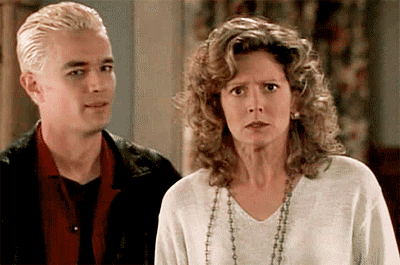
I understand that love triangles might not be everyone's cup of tea - and that's okay. But to paint the entire trope under the broad strokes of teenage vanity and wish fulfilment is to do it a disservice.
Because for the most part, it isn't just some vapid romance. A lot of the most popular stories within the genre are actually complex YA fantasies in and of their own right, driven by your standard emotionally-driven, coming of age beats. They just happen to feature a female protagonist who falls in love.
Okay, maybe in this example she falls in love a few times. But so what? Getting your heart broken and mended again is a part of growing up, so why shouldn't it have a place in YA/NA fiction?
If young men are allowed to froth over some guy getting bitten by radioactive a spider and getting superpowers, then we can have two sexy vampires pining over the same girl.

#true blood#sookie stackhouse#southern vampire mysteries#love triangle#literature tropes#tv tropes#fantasy#fantasy romance#fantasy books#the vampire diaries#elena gilbert#buffy summers#buffy the vampire slayer#the hunger games#katniss everdeen#acotar#feyre x rhysand#feyre x tamlin#feyre#legendborn#bree matthews#shadow and bone#alina starkov#hero's journey#heroine's journey#the smut analyst#writing tips#romance plot#character building
80 notes
·
View notes
Text
Looking at a lot of Loustat shippers and how they view/talk about Louis, is making me think of the BtVS fandom, the first fandom I joined when I was 16/17.
Anyway, a lot of the Spuffy shippers were out there calling Buffy derogatory names, saying SHE was the actual abusive one in the relationship, writing the most vile essays/fanfiction about her needing to be brought down a peg and admit she was wrong and Spike was right, saying the show was boring without Spike, despite Buffy being the main character, could not talk about Buffy as a character separate from Spike, propping up James's acting skills over Sarah's, made it sound like Spike was a better parent to Dawn than Buffy was (?), saying that the other men she was in romantic relationships with were much more abusive than Spike, excusing Spike for basically all of his actions and woobifying him because of his trauma....
and then you'd have the more critical Spuffy/non-Spuffy shippers (mainly woc) pointing out the blatant misogyny and victim-blaming in this way of thinking, pointing out how Spike represents some of the worst aspects of racism and the patriarchy, both textually and subtextually, even providing scholarly articles and literature to back up their claims, and asking why do you even ship Spuffy if you hate Buffy? Which of course received extreme backlash and harassment from people racing to defend Spike themselves, saying, no of course they didn't hate Buffy, but Spike is more complex than you're making him sound, and no he's not a racist or hates women, he's actually a feminist and a punk/anarchist and doesn't kill based on race, you're just a vile sjw and an anti who loves ruining everyone else's fun.
Anyway. Why do you even ship Loustat if you hate Louis?
#lol they also called spike the woman in the relationship too if i remember correctly#louis receives the same treatment as a woman does...both in fandom and in the show much to think about#the woobification of evil blonde men and the vilification of their women pipeline#with that villification of louis even more amplified because he's now a poc!#buffy summers#louis de pointe du lac#btvs discourse#buffy the vampire slayer#iwtv discourse#interview with the vampire#fandom racism#anti lestat de lioncourt#anti spike#to be safe#and yes...i was a spuffy shipper 😭luckily with some critical thinking skills#but yeah..louis and buffy apparently are boring and bad and are soooo hopeless without their men and you can't talk about them#without bringing up their men up like idk maybe you don't like them as much as you think you do!!!
48 notes
·
View notes
Text
by the way, the popular translation of the BTV News article in Deep Cover mistranslated the name of the serial killer's dad, it's missing a character. it's not "Isamu," its something along the lines of "Kenyuu" (賢勇)
it might be notable that the name on the business card HARROW isn't the same as the name in Deep Cover. the one in HARROW is 賢男, instead of 賢勇. it's missing the マ fsr
#milgram#<-- sry for maintagging a post that's only abt a side character LOL#*additionally the killer himself could be tsugumichi OR adou#i see the jp fanbase use adou but since theres no kana spelling its more vague
22 notes
·
View notes
Text
instagram
@realjamesmarsters: "Spike rides again! Through the magic of Audible I’ve been given the opportunity to play him again. Head over to my socials for links to an EW article about the project. Thanks to all of you who ordered a Spike video on Cameo. Because if you I was well rehearsed to climb back into a certain black trench coat!"
https://www.cameo.com/jamesmarsters/follow/post/6501f3f7d08aee5e08e8bfb2
#JamesMarsters #Slayers #Buffy #BuffytheVampireSlayer #BtVS #Spike
#james marsters#buffy#buffy the vampire slayer#btvs#spike#jamesmarsters#buffythevampireslayer#Instagram
31 notes
·
View notes
Text
Wrestling with Whedon
Welcome, Scooby Gang!
When we discuss Buffy the Vampire Slayer, it’s impossible to ignore its creator, Joss Whedon. Once considered a nerd god, his fall from grace has stunned fans, leaving them just as heartbroken as those of the Harry Potter franchise. But let’s start from the beginning: who is Joss Whedon? Many consider Whedon the auteur of BtVS, a term used to denote “a film director who influences their films so much that they rank as their author” (OED); think here of Alfred Hitchcock. Although all of Whedon’s projects, including BtVS, were brought to life by an army of creatives, Whedon is still credited as the creator and sometimes writer and director, rendering his name and contributions inseparable from these projects.
Joss Whedon might be one of the worst nepotism babies of television writing, with his grandfather being a writer on shows such as The Andy Griffith Show and The Golden Girls being among his father’s projects. Growing up in New York City, Whedon lived a life of luxury, attending Winchester College, a British boarding school, and graduating from Wesleyan University in Connecticut. Although this all sounds like a peaceful and privileged life, Whedon has also come out to say that his parents “ran the home as though they were in the thick of” “a writers’-room battle” and that if he or his brothers “weren’t funny or entertaining or agreeing with them, they would cut [them] down or turn to stone” (Vulture). Because of his childhood experiences, Whedon says that “he suffers from complex post-traumatic-stress disorder” (Vulture); yet, despite not wanting to discredit his trauma, I don’t believe that this excuses him for how he went on to treat others in his life.
In the 1990s and 2000s, Whedon’s career steadily grew and his cult following of fans with it. With projects such as Buffy the Vampire Slayer (1992, 1997-2003), Angel (1999-2004), Toy Story (1995), Alien Resurrection (1997), Firefly (2002), Serenity (2005), Dr. Horrible’s Sing Along Blog (2008), and Dollhouse (2009-10), Joss Whedon became a god and a king among nerds and the comic-book artist Scott R. Kurtz even designed a highly successful shirt in 2005 that read “Joss Whedon is my Master Now.” Even within the workplace, “a sort of cult of personality formed around Whedon” where “the standard reaction to Joss was worship” (Vulture). During this time, many of Whedon’s projects did not succeed to the extent that many believed they should have, beginning with the “painful” interpretation of his vision for the original BtVS movie, as Kai Cole, his ex-wife, put it (The Wrap), and continuing through to the mishandling and cancellation of Firefly. As a Vice article puts it:
“The culture of liking Joss Whedon was at this point already about defending him from various enemies—networks who canceled his shows, actors who he claimed said his lines incorrectly, or improvised too much. [...] His success was a symbol of success for liberal nerds everywhere, a sign that comic books and genre fiction could be taken seriously by the world at large. If you were wrapped up in that fandom, any criticism of Whedon became an attack on everything that nerds love, and it’s a dynamic that doesn’t exist only in the past tense.” (Vice)
This passionate and often obsessive fanbase aided Whedon’s breakthrough into mainstream culture in the early 2010s, when, within a single year, Whedon released three very different yet successful projects: The Cabin in the Woods (2012), a horror movie satire, Much Ado About Nothing (2012) a black and white DIY production of a Shakespeare classic, and The Avengers (2012), the renowned Marvel superheroes film. This year marked the height of Whedon’s career, with his following projects slowly marking his downfall.
In 2015, with the release of The Avengers: Age of Ultron, Whedon encountered his first backlash and the first indications of flaws in his feminism. Viewers labelled the film as sexist because of a scene where Black Widow claims to be monstrous since she cannot bear children. Two years later, in 2017, Whedon’s scrapped 2006 Wonder Woman script leaked, and those who read it once again saw his portrayal of female superheroes as sexist, this time regarding his script as a nerd’s wet dream. Later that same year, Kai Cole, Whedon’s ex-wife, released a public statement about her relationship with Whedon and revealed his numerous affairs and over a decade of lying. In this article, Cole explains that they met in 1991 and were married for over twenty years before separating. In this time, spanning the most successful years of Whedon’s career, Kai Cole says: “I loved him. And in return, he lied to me. A lot” (The Wrap). Cole believes that “he used his relationship with [her] as a shield [...] so no one would question his relationships with other women or scrutinize his writing as anything other than feminist” (The Wrap). Whedon even did the opposite and used his feminist reputation as a defence in his marriage when Cole was at times “uncomfortable with the attention Joss paid other women” (The Wrap). She elaborates that “he always had a lot of female friends, but he told me it was because his mother raised him as a feminist, so he just liked women better. He said he admired and respected females, he didn’t lust after them. I believed him and trusted him” (The Wrap). Sadly, Whedon’s later projects—and even earlier projects, although viewers did not notice it—revealed that he did not solely admire and respect strong female characters but sexualized them for his own satisfaction.
Whedon’s reputation as a feminist was so strong that he had even previously received awards for his feminist efforts, notably when “Equality Now gave him an award in 2006—presented by Meryl Streep—for his efforts as a male feminist” (Vice). Cole wanted to correct this vision of Whedon, who, as she says, “never conceded the hypocrisy of being out in the world preaching feminist ideals, while at the same time, taking away [her] right to make choices for [her] life and [her] body based on the truth” (The Wrap). In the end, Cole only desired to warn against the previously normalized worship of her ex-husband and explained, “I want to let women know that he is not who he pretends to be. I want the people who worship him to know he is human, and the organizations giving him awards for his feminist work, to think twice in the future about honouring a man who does not practice what he preaches” (The Wrap). Cole’s statement was the fandom’s wake-up call, but many continued worshiping Whedon, simply acknowledging that he was human and made mistakes. At this point, all we knew was that he cheated on his wife—it was sad, but it was not anything out of the ordinary for celebrities and the average person alike.
Over the years, more women have come forward to share their experiences with romantic or sexual relationships with Joss Whedon. In Cole’s article, she says that Whedon had his first affair on the set of Buffy the Vampire Slayer, and years later, after coming clean about this, he told her, “I was surrounded by beautiful, needy, aggressive young women. It felt like I had a disease, like something from a Greek myth. Suddenly I am a powerful producer and the world is laid out at my feet and I can’t touch it” (The Wrap). Whedon has used this feeling of helplessness as an excuse for his mistreatment of the women of BtVS numerous times, explaining elsewhere that “he had felt he ‘had’ to sleep with them, that he was ‘powerless’ to resist” (Vulture). If this reminds you of rapists blaming their actions on their victims’ clothing, professions, or behaviours, saying they couldn’t control themselves, you’re not the only one. Even as a younger man at university, “he admired strong women like his mother, yet he’d discovered he was capable of hurting them, ‘usually by sleeping with them and ghosting or whatever’” (Vulture). In the accounts from women who dated Whedon after his marriage ended, “he was not the hero they had read about in the press, the one who wanted to see women in control; he was more like the cold-blooded men he depicted in his work” (Vulture), and the Whedon at Wesleyan sounds a lot like Parker Abrams from early season four, or even Angel right after he lost his soul. Since his marriage ended, Whedon has sought treatment for a love and sex addiction, a path also taken by celebrities such as “James Franco, Kevin Spacey, and Harvey Weinstein” (Vulture). If Vulture’s article was more recent, I am sure Kanye West would also be on that list. Additionally, celebrities such as Russell Brand, David Duchovny, Tiger Woods, and Rob Lowe have also sought treatment for the same addiction, with many of these celebrities only doing so in response to a cheating scandal. Whether Whedon has healed and grown in this regard is unbeknownst to us, but many before him paved this path to redemption in the media’s eyes.
The same year as Cole’s statement, Justice League (2017) came to theatres, which Whedon later labelled as “one of the biggest regrets of his life” and would contribute considerably to his downfall (Vulture). The original director of the film was Zach Snyder, who had his own group of devoted and worshiping fans, but he had to drop the project to be with his family after his daughter committed suicide, so Whedon took over the post-production duties. Whedon did more than oversee the final touches, though, and instead made drastic changes to the film. After viewers were disappointed by Whedon’s version, they demanded to see Snyder’s, which the studio released in 2021; yet, before its release in 2020, the cast began speaking out about their experiences with Whedon. What precipitated the avalanche of testimonies regarding Whedon’s workplace behaviour was a July 2020 tweet by Ray Fisher saying that “Joss Whedon’s on-set treatment of the cast and crew of Justice League was gross, abusive, unprofessional, and completely unacceptable.” Following Fisher’s statement, allegations of racist treatment of the actor and character surfaced, and other actors came forward with their experiences. Suddenly, the fans who worshiped Snyder were attacking Whedon online, and those who previously worshipped Whedon weren’t sure what to do. Allegations of Whedon abusing his power continued to emerge over the next few months, but what put the nail in the coffin holding Whedon’s reputation happened in 2021 when Charisma Carpenter went to Twitter to rehash her experiences with Whedon on the set of Angel. This was not the first time she had discussed his “casually cruel” behaviour or her wrongful dismissal; in fact, “the actress has been talking about it with fans and reporters for more than a decade” (Vulture), but it was nonetheless the final straw. By the time the first half-season of The Nevers (2021) premiered on HBO, promising Whedon’s return to television, Joss Whedon had already stepped down as the showrunner, and the marketing did not acknowledge his involvement. In the year and a half since its airing, HBO has cancelled the show and removed the already aired episodes from their library—HBO, at the very least, is treating Whedon to the full cancellation treatment, and we will see who follows suit.
But what does this all mean to the fandom and scholars? In truth, no one is sure, but they have been asking just that for the past two years. Since so many people around the world love BtVS so much and yet are so deeply disappointed in what has come to light about Whedon, many people have decided to divorce the art from the artist, completely ignoring Whedon’s role in its production, or they have erased BtVS from their lives. These are both flawed responses. The first response, where people have separated the art from the artist, neglects the richness of potential scholarship or understanding that becomes available by analyzing BtVS alongside what we now know about Whedon. As one article explains, “the belief that [Buffy’s] story was something other than a projection of his psyche is ultimately just another fantasy. Whedon did understand pain — his own. Some of that pain, as he once put it to me, ‘spilled over’ into the people around him. And some of it was channeled into his art” (Vulture). There is new and rich nuance to BtVS that fans and scholars alike should not ignore. The second response ignores the contributions of everyone else who worked on the show; it feels inappropriate to disregard the effort of these writers, producers, directors, makeup artists, costume designers, set designers, actors, and the list goes on, especially if they continued to contribute to a project they saw the merits in despite the work environment being less than ideal or even toxic and abusive. If they endured Whedon’s cruelty during BtVS’ production, then we should acknowledge and be thankful for their work rather than dismiss it because of their boss’ wrongdoings.
After all, BtVS now belongs to the fans and scholars who have made it what it is, and although people throw this sentiment around, it is grounded in literary theory, that being Roland Barthes’ ‘Death of the Author’ essay from 1967. In this essay, Barthes puts forth that we, as fans and scholars, should not study a work in tandem with its author and that an author does not exist in the way we think of it. It’s a complicated essay, so let’s pick out some pieces that help us understand BtVS and Whedon. Barthes makes two foundational statements about authorship: “writing is the destruction of every voice, every origin. […] this gap appears, the voice loses its origin, the author enters into his own death, writing begins,” and “the text is a fabric of quotations, resulting from a thousand sources of culture. […] the writer can only imitate an ever anterior, never original gesture.” According to Barthes, the author does not create anything new but instead translates, borrows, and recontextualizes what already exists; further, he is not doing so with his own voice, but he is merely the medium through which these previous sources move—the author dies as the work is born. Relating this to BtVS, we must remind ourselves of what the writers claimed to be their inspirations, but also what we see within the series since the show as a whole may appear new despite everything within it has previously existed and carries meaning with it. All those pop culture references that the show makes seem inconsequential but may be much more significant than we previously understood since the significance behind these references impacts the meaning of BtVS.
BtVS’ authorship is further complicated when we consider Barthes’ assertions that “to assign an Author to a text is to impose a brake on it, to furnish it with a final signified, to close writing. […] once the Author is found, the text is ‘explained.’” Although I just explained how I believe that we should acknowledge Whedon’s influence on BtVS, I want to emphasize that we will never truly understand the collective authorship of BtVS since so many talented writers were in the writing room, many individuals worked on the project, and even the viewers were able to impact the show’s development. Finally, Barthes makes the point that art belongs to the fans, saying that “the unity of a text is not in its origin but in its destination,” and I understand this to mean that the meaning of art is not decided by the author or writer but by the reader or watcher, and gives them what they need from it. Each BtVS viewer came to the show from a different place, and yet so many people found something special in it which spoke to them, and the writers may claim to have meant these things or not, but the meaning, or “unity of a text,” is not dictated by the writers, but by the fans, the “destination.”
Joss Whedon may have written the original Buffy the Vampire Slayer script thirty years ago, and the show may have concluded twenty years ago, but BtVS never truly belonged to Whedon. BtVS has always belonged to the viewers, fans, and scholars, so although Whedon’s actions have added complications to the series and how people now enjoy it, they should not stop anyone’s enjoyment of it.
That’s that for this Sunnydale study session!
Liz
TL;DR: Whedon sucks and I recommend you read these articles:
https://www.vulture.com/article/joss-whedon-allegations.html
https://www.thewrap.com/joss-whedon-feminist-hypocrite-infidelity-affairs-ex-wife-kai-cole-says/
https://www.vice.com/en/article/v7d34y/when-joss-whedon-was-our-master
88 notes
·
View notes
Link
Great list!!!
1 note
·
View note
Text
The Sunnydale Herald Newsletter, Wednesday, April 17
BUFFY: So, you've been seeing a guy, and you don't know what he looks like? Okay, this is a puzzle. No, wait, I'm good at these. Does it involve a midget and a block of ice?
~~BtVS 1x08 “I, Robot... You, Jane~~
[Drabbles & Short Fiction]

Disastrous Date (Buffy, Owen Thurman, Giles, PG) by badly_knitted

Numb (Buffy, PG-13) by veronyxk84

[Series: 11 drabbles added] Crossing Over - BtVS/Spuffy crossover drabbles (Ensemble, xovers w/ various shows, G) by julikobold
Love Language (Xander/Spike, not rated) by forsaken2003
Who the Hell is Lindsey McDonald? (Lindsey, Leverage xover, G) by nival_kenival

Spike x Female Reader Pt. 1 (not rated) by crowwritesaway

[French language] Des fleurs pour la St Valentin (Buffy/Spike, G) by MissKitty28

To the ghosts between us (Buffy/Spike, PG-13) by will_
[Chaptered Fiction]

You’re my always, Chapter 4/4 (Willow/Tara, T) by ronanceisrxmance
Six Inches Between Us, Chapter 3/3 (Buffy/Giles, E) by AddieH
Staying Afloat, Chapter 21/? (Willow/Oz, T) by dwinchester
[Spanish language] Me haces tanto bien, Chapter 4/? (Buffy/Spike, M) by Nigthmareintheheaven
With Arms Wide Open, Chapter 31/? (Buffy/Giles, E) by jaybird023
[Ukrainian language] Forward to Time Past//Вперед у час минулий, Chapter 37/67 (Buffy/Spike, E) translation by Uraniya
Infinitely, Chapter 48/? (Willow/Tara, M) by Laragh
[French language] Recommencer, Chapter 7/? (Buffy/Faith, M) by FridayQueen
In the Dark of the Night, Chapter 8/? (Buffy/Spike, Jenny/Giles, M) by norik23

[French language] La fin des temps, Chapter 31 (Buffy/Spike, G) by MissKitty28
The Scoobies, Chapter 11 (Ensemble, T) by heckate

Faded Hope, Chapter 26 (Buffy/Spike, Adult Only) by bitchee

Blood and dust, Chapters 5-6 (Buffy/Spike, 18+) by Blackoberst

What the Drabble? Vol. 2, Chapter 13 (Buffy/Spike, PG-13) by VeroNyxK84
[Images, Audio & Video]

Artwork: butterflies and sleepy vamps (Buffy/Spike, worksafe) by tubesock86
Artwork: Buffy back study (worksafe) by isevery0nehereverystoned
Artwork: Dusk (Buffy, tarot, worksafe) by isevery0nehereverystoned
Artwork: dead end (Lindsey McDonald, worksafe) by genericaces
[Reviews & Recaps]

PODCAST: HELLMOUTH HOMOS: Hush by Fear Queers
PODCAST: Bonus Episode 3! Season 3 Recap by Gym Was Cancelled
[Community Announcements]

Event: Pen & Paint 2024 by SADmins
[Fandom Discussions]

I understand the appeal of fics where Spike doesn’t get his soul back, but [...] by nicnacsnonsense
[anon ask] [Thoughts on the dynamic between Faith and Dawn] answered by explosionshark
I haven’t processed that [Cordelia's fate's] not a prank yet by littled0lls
Houses are NOT safe with [Buffy]! by aphony-cree
[Buffy] loves so deeply and irrationally and makes every love a part of her by crimeboys
[About Jesse's fate] by stardust-kiddo
[ask] [Some fix-it scenarios for BtVS] answered by fox-toothed
Andrew Wells’s monologue about Faith by coraniaid
BTVS opinion : 4x09 [Spike seeing Willow's pain] by nevereverthem

The Romani still hold onto their vengeance but not a transcript of the dang curse by thisisgoing2far
Faith's more of an Angel than a Spike by LightBlueSky55
“Hell-Bound” in Angel is such an underrated scary episode by Eagles56
Vampires and their mothers by failed_asian
Did they purposely write Buffy as being slightly less cool when Faith came along? by Tsole96
Oz & Early Faith by Neat-Biscotti-2962
Which half of BtVS do you love? by Kindofaddictedtotv
What do you think is the best three episode streak in the whole series aka your "holy trinity"? by incendio1897
Tell me why you love Buffy! What does the show bring to your life? by secyning
Faith and Wood? by Slayerette444
Which 1-2 episode character would you have liked to see join the scoobies? by dragonsrawesomesauce
Who do finance the watcher's council? by Imcyves
[Articles, Interviews, and Other News]

CONVENTION: David Boreanaz, Charisma Carpenter, and Julie Benz in Orlando, Sept. 2024 by Fanboy Expo Orlando
CONVENTION: James Marsters to Attend Ultracon of South Florida 20-22 Sept. 2024 by James Marsters News
Submit a link to be included in the newsletter!
Join the editor team :)
6 notes
·
View notes
Text
theres this article i always wish i could find again about how tv characters that are nonhuman are more allowed to show a full range of messy real emotions because they’re “monsters” and don’t need to be held to the same standards of morality/perfection/goodness to be watchable. their example was spike btvs. i think that’s very jack kline, both because he’s a child and because he’s a nephilim so his emotions can be shown through emotional expression of his powers
7 notes
·
View notes
Text
Any time I see one of my Btvs posts get reblogged by the Sunnydale Digest I feel like I wrote an article that got picked up by Time magazine or National Geographic.
10 notes
·
View notes
Text
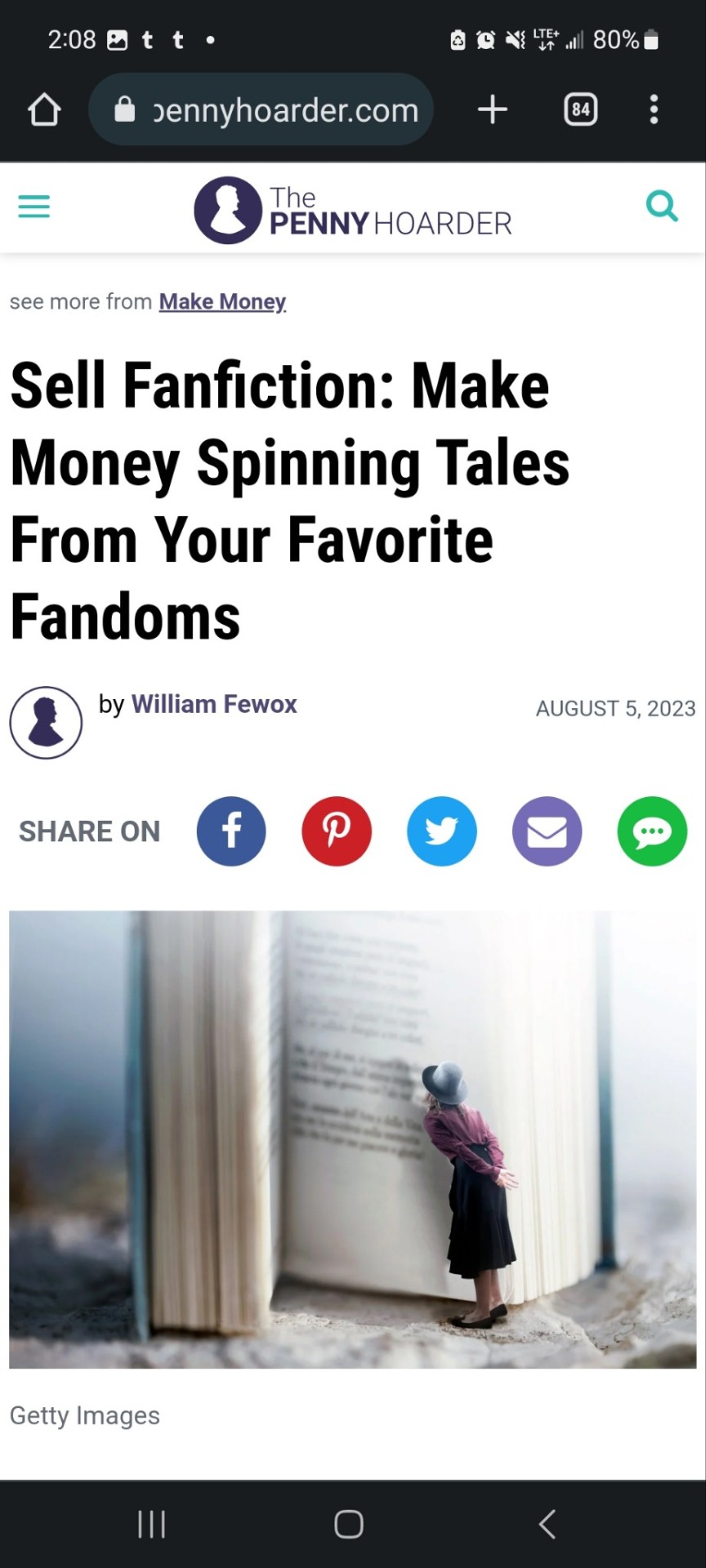

this... feels like really terrible advice. i don't know the nuances of like, copywrite infringement, but i thought the cardinal rule of fanfiction was that there is NO MONEY INVOLVED. it's a passion project done because you love the stories and the characters.
i think part of what he's saying is okay -- if you build traction as a writer of fanfiction, link to your original stories somehow and hopefully some of your fans will purchase your original stories/books.
and of course there's the gray area of what e.l. james did with turning her twilight fanfic into what's now fifty shades of grey, right?
but am i crazy? am i missing something here? or is this article just not great advice? commissions for fanfic brings the (and i realize i'm dating myself here) writer cousinjean to mind, who (back in the day) floated the idea of quitting her day job to focus on writing her buffy the vampire slayer fanfiction, IF HER FANFIC READERS PAID HER, and the feedback she received was so harsh (iirc) she completely left the BTVS fandom.
can someone else better versed in the legalities of fanfic weigh in on this please?
#fanfic#fanfiction#copyright#copyright law#copyright infringement#ao3#archive of our own#fanfic laws#fanfiction.net#bad advice
6 notes
·
View notes